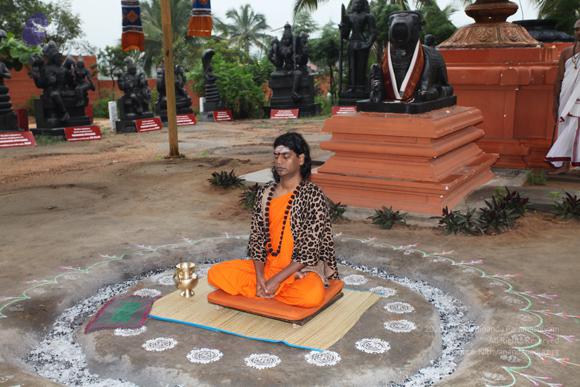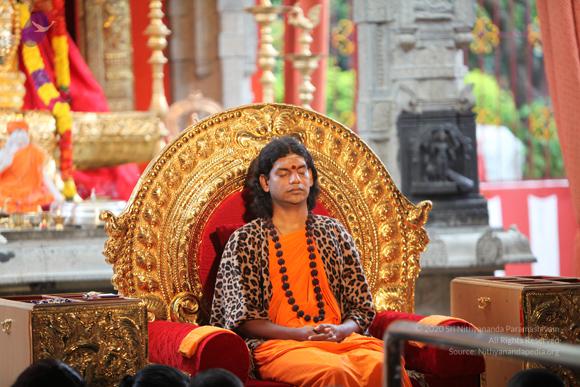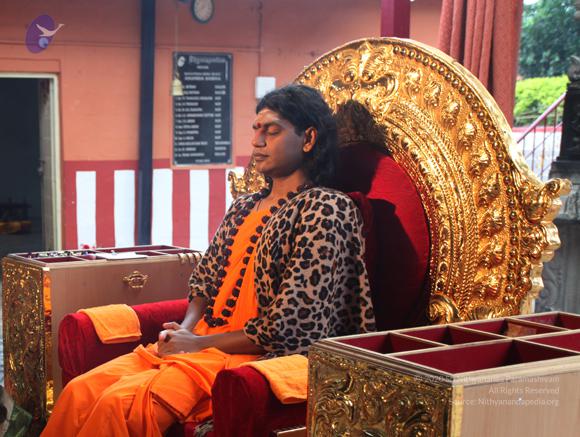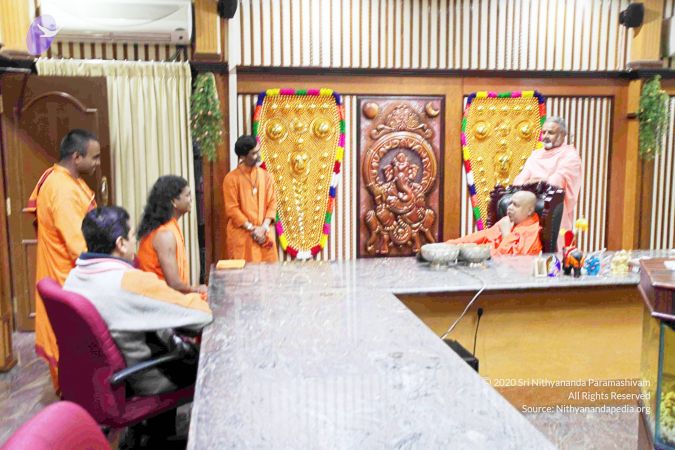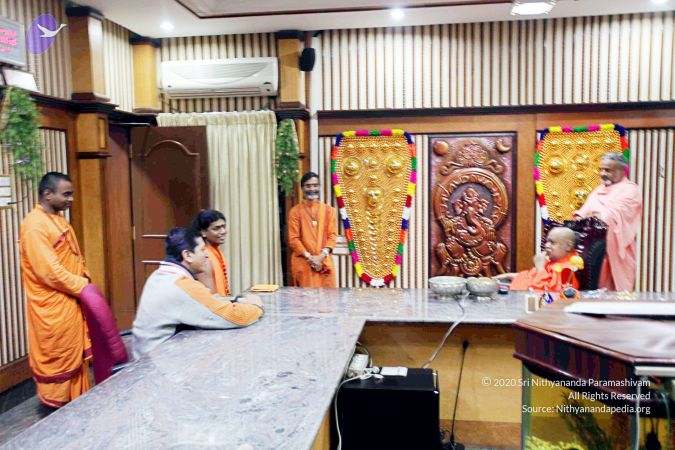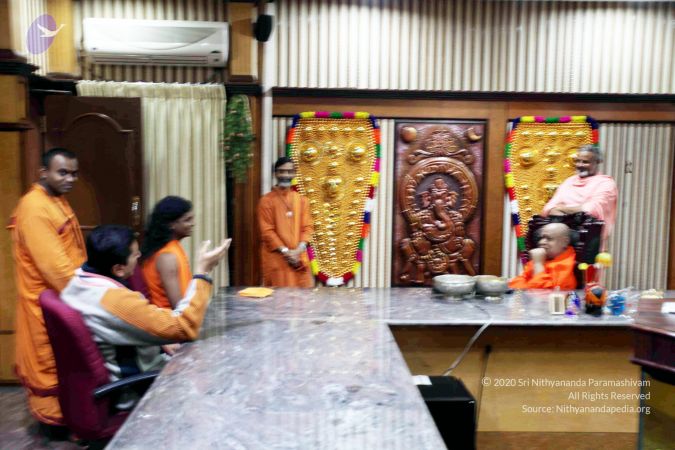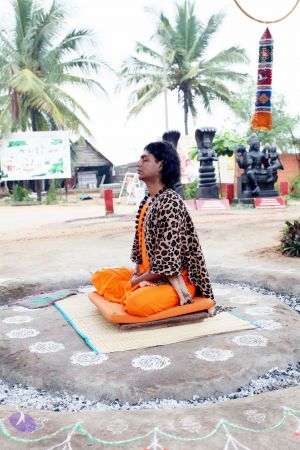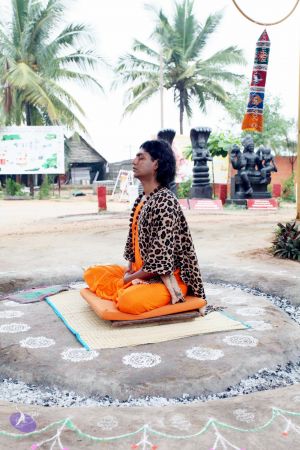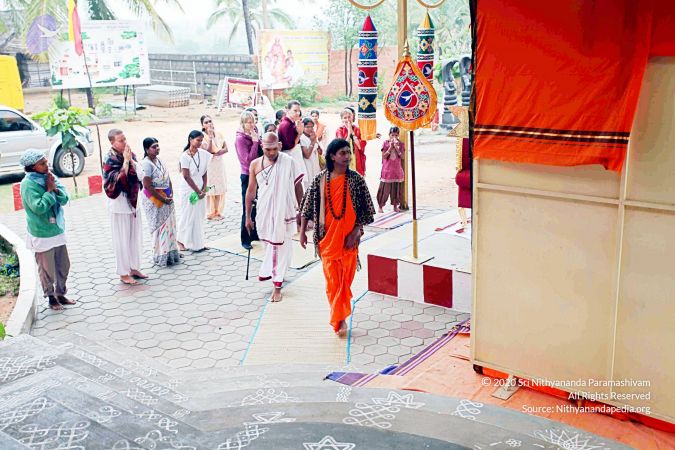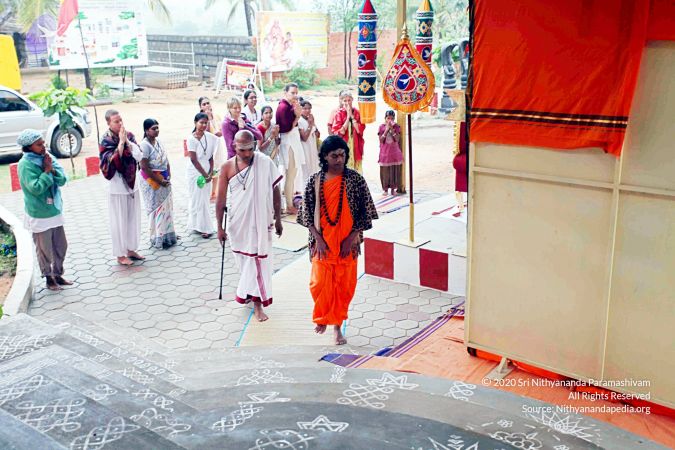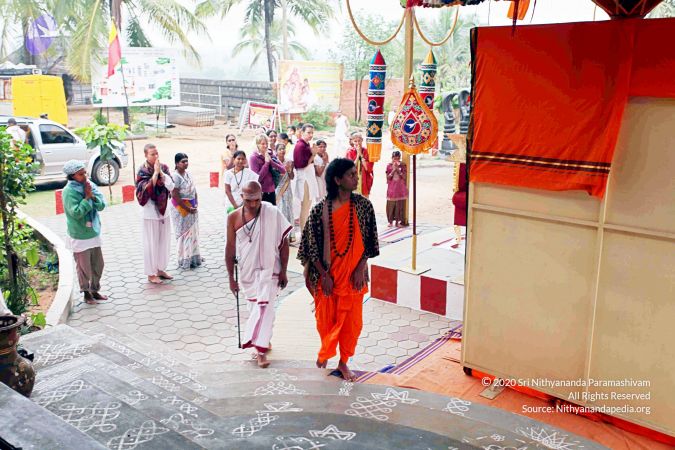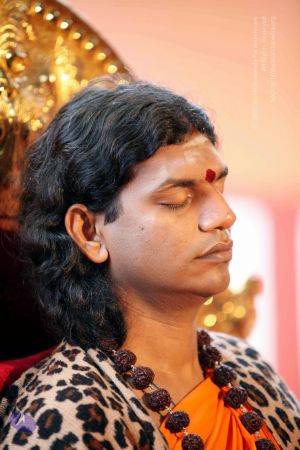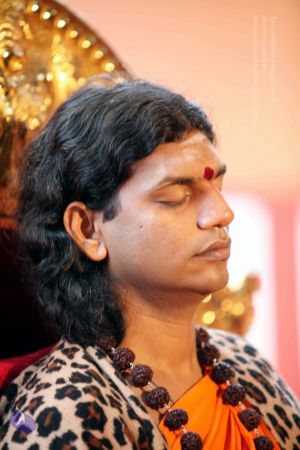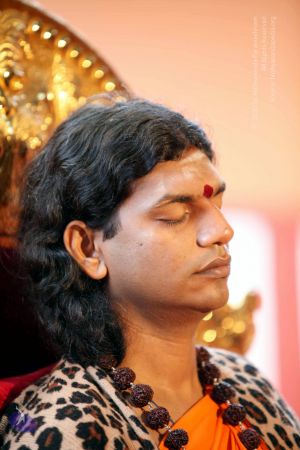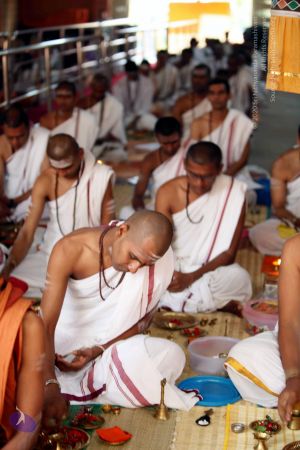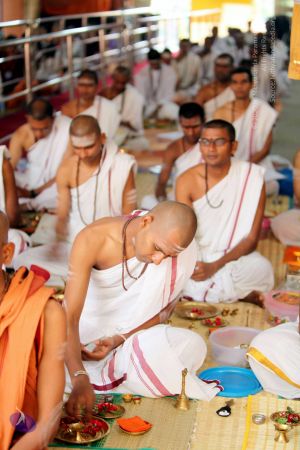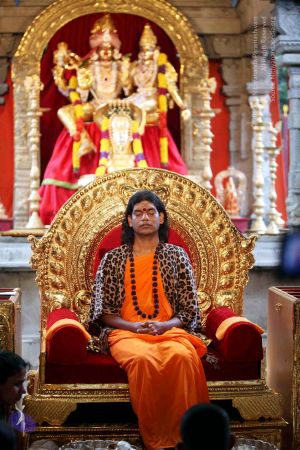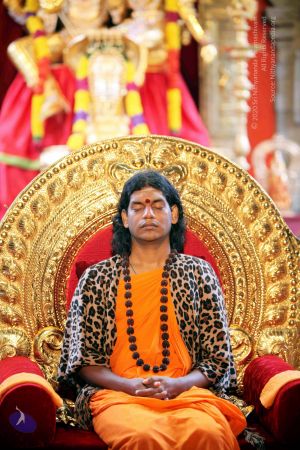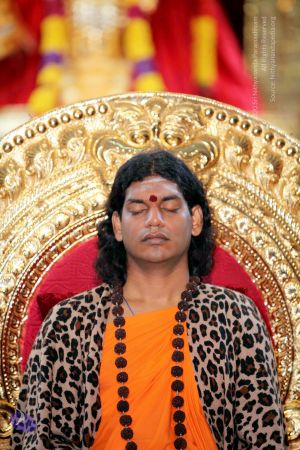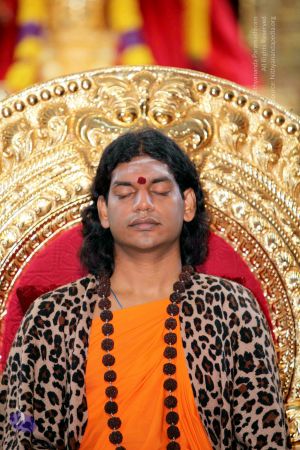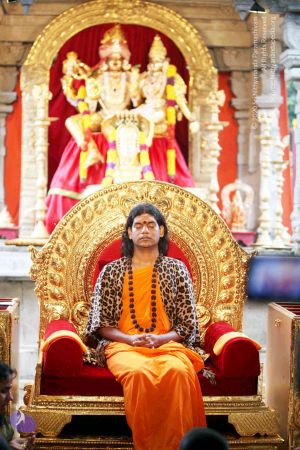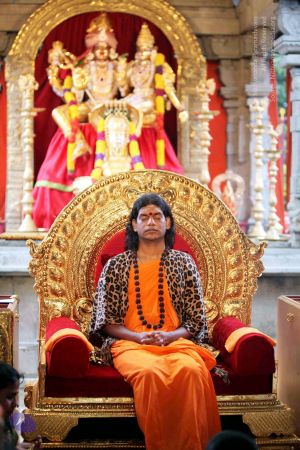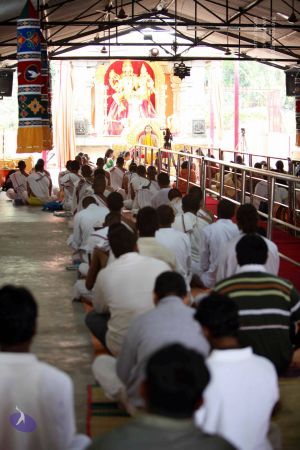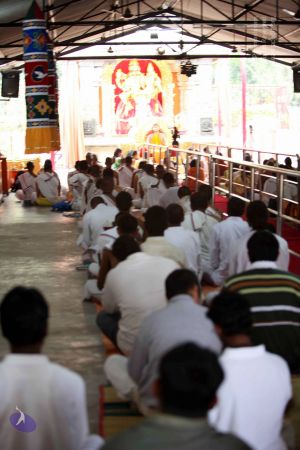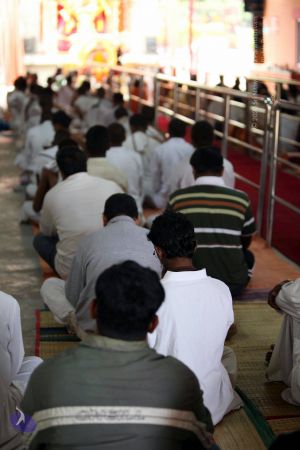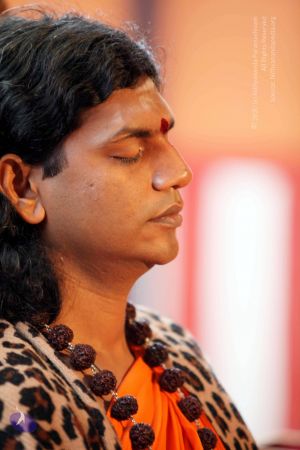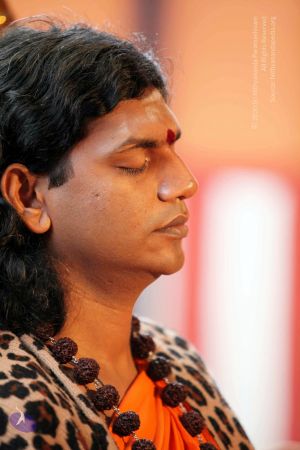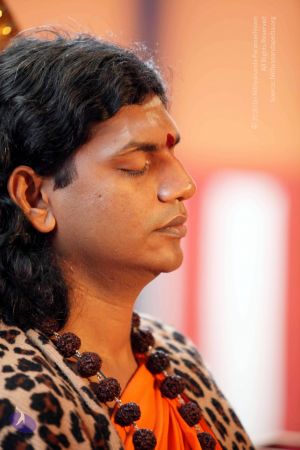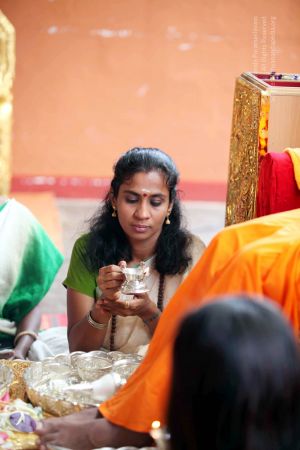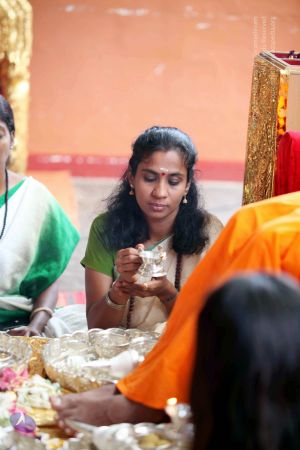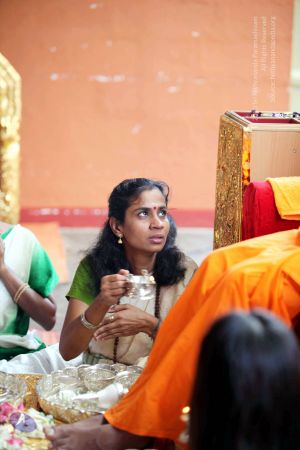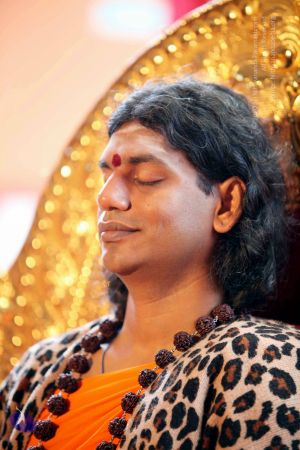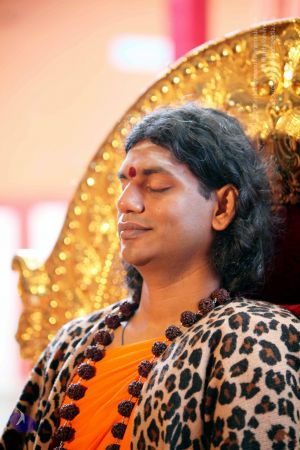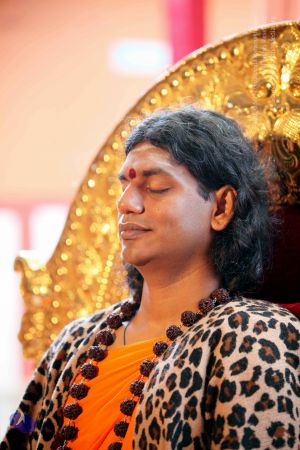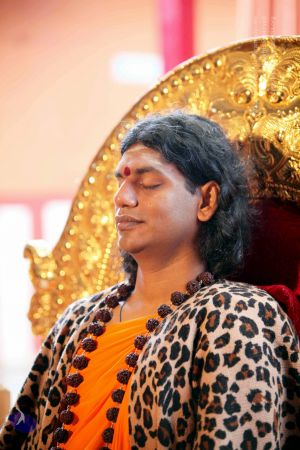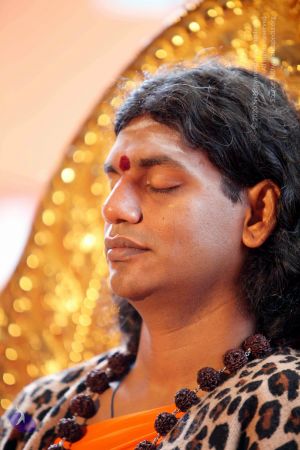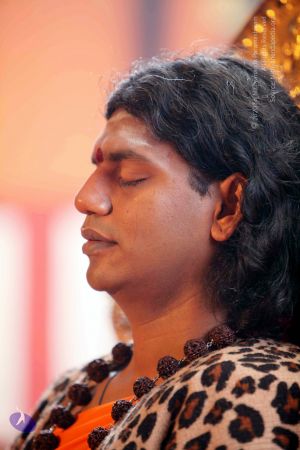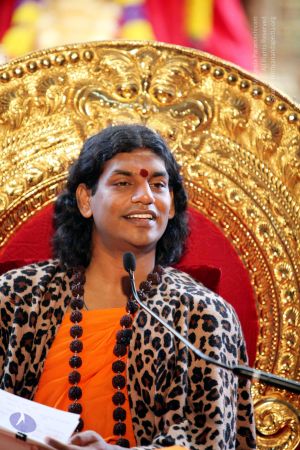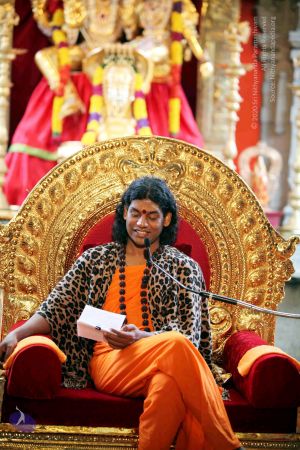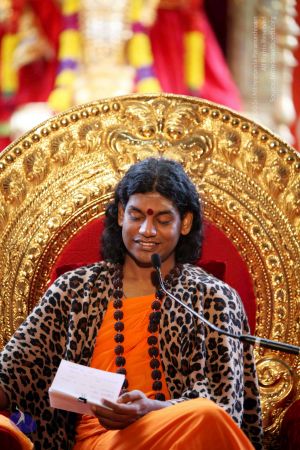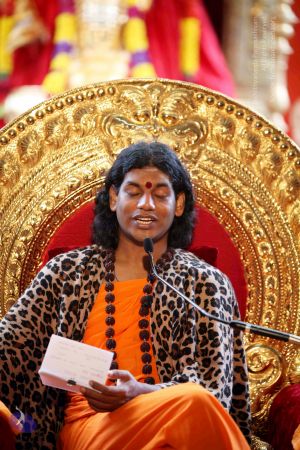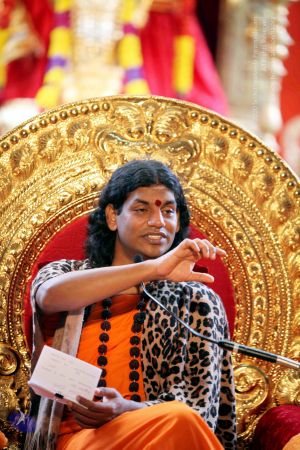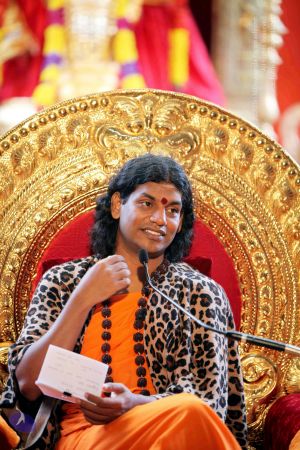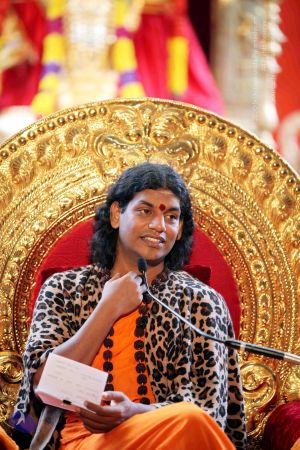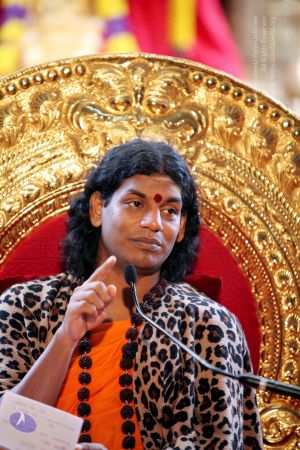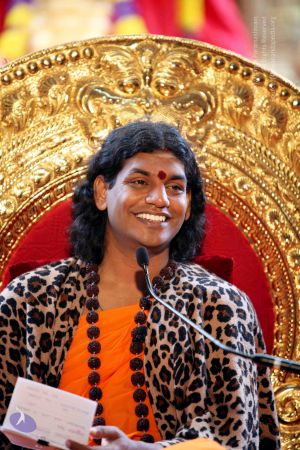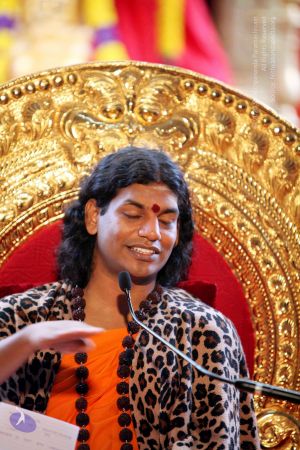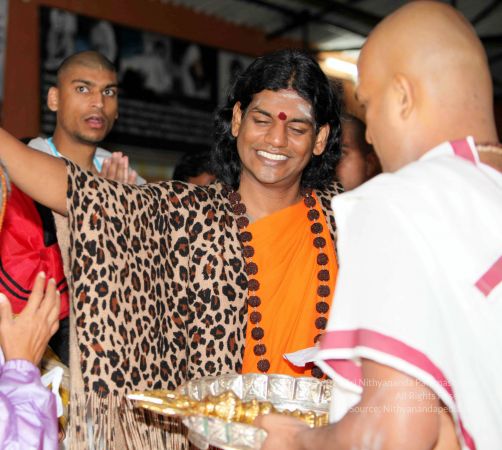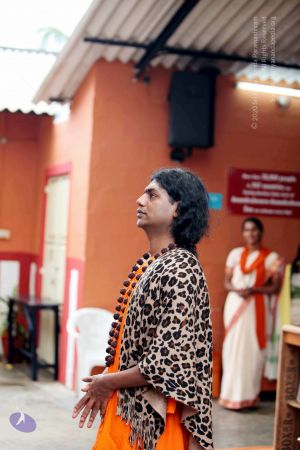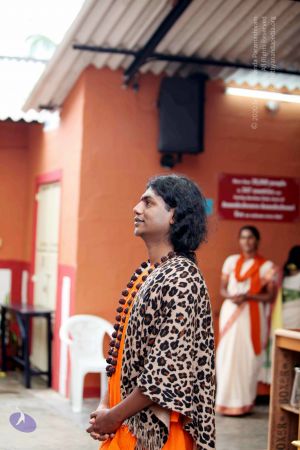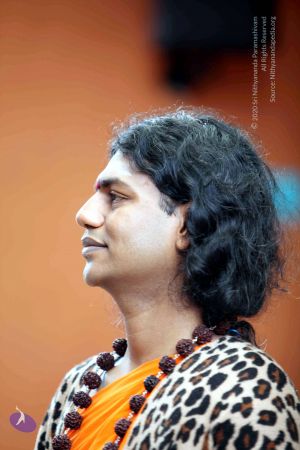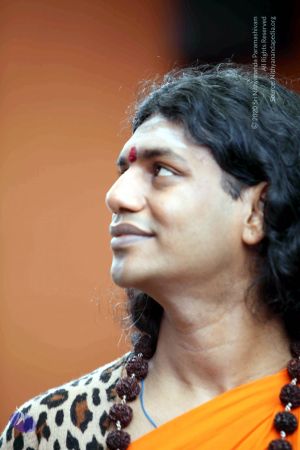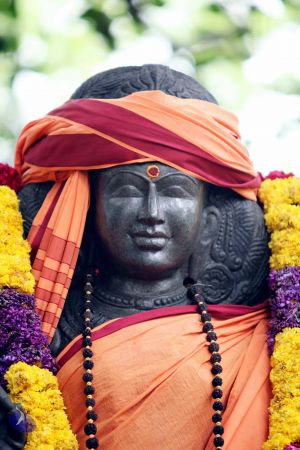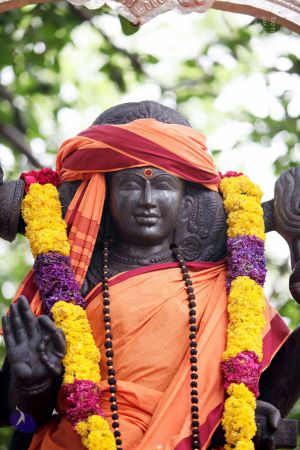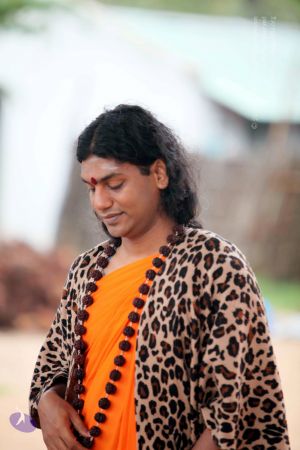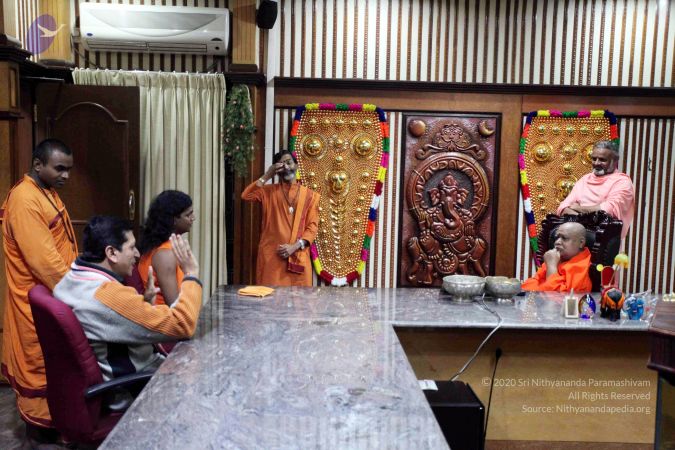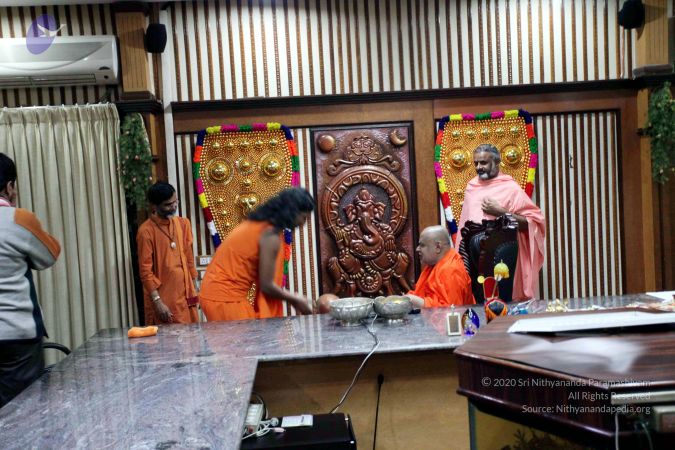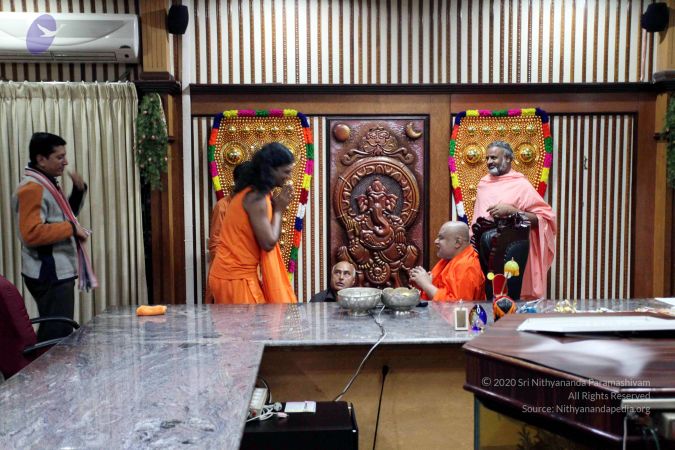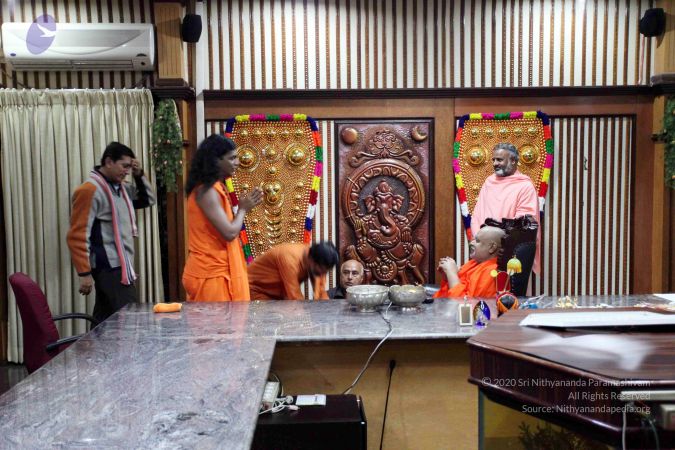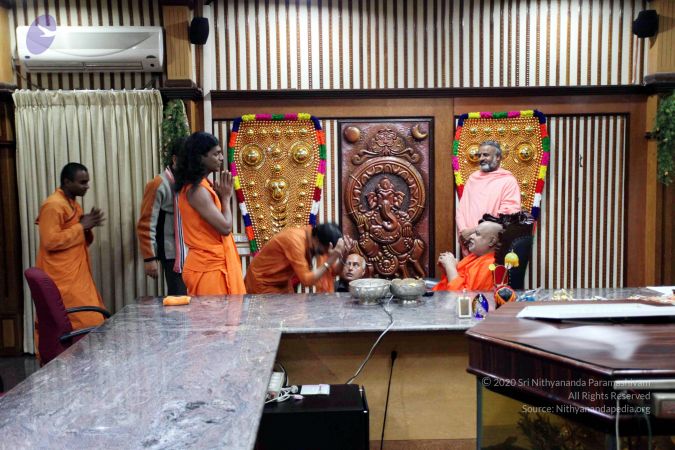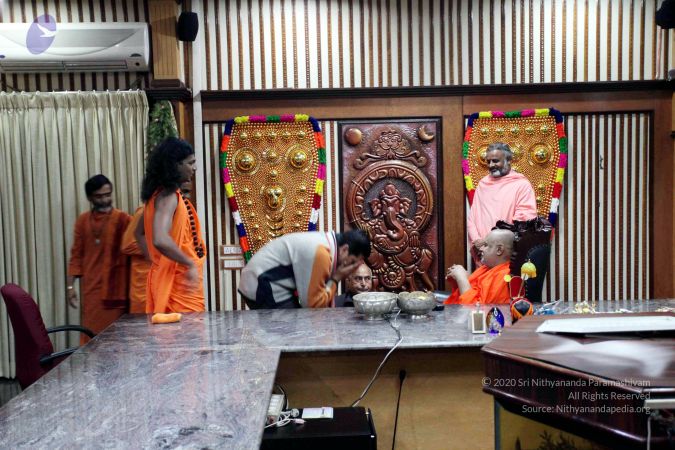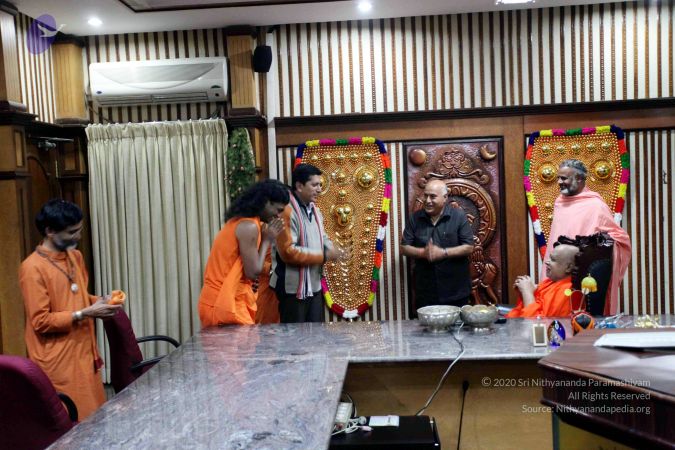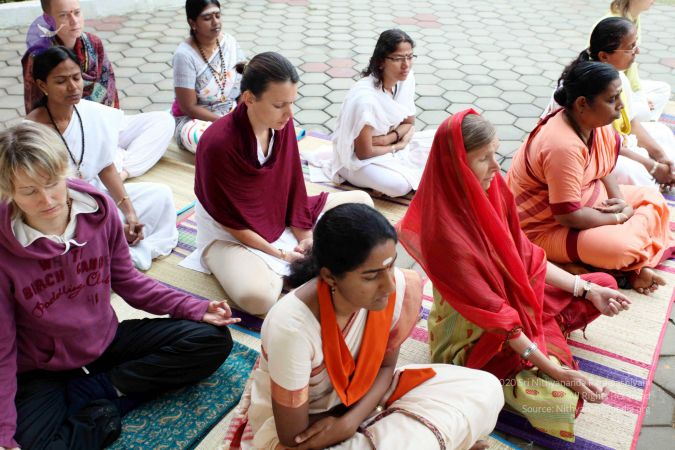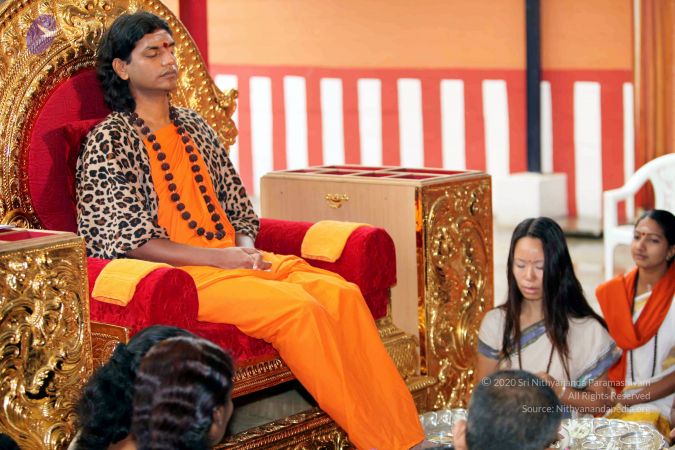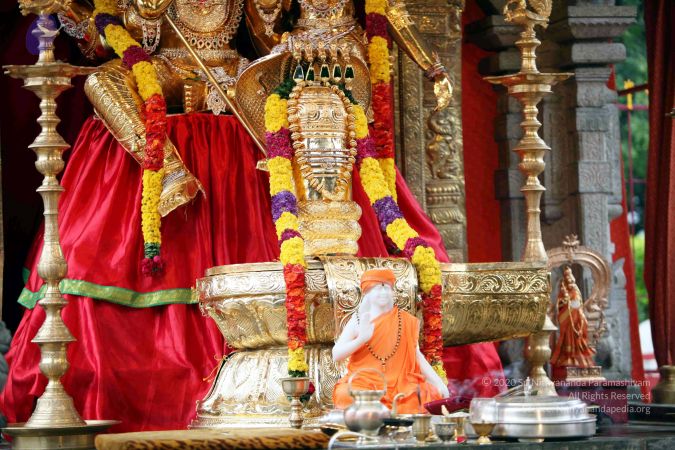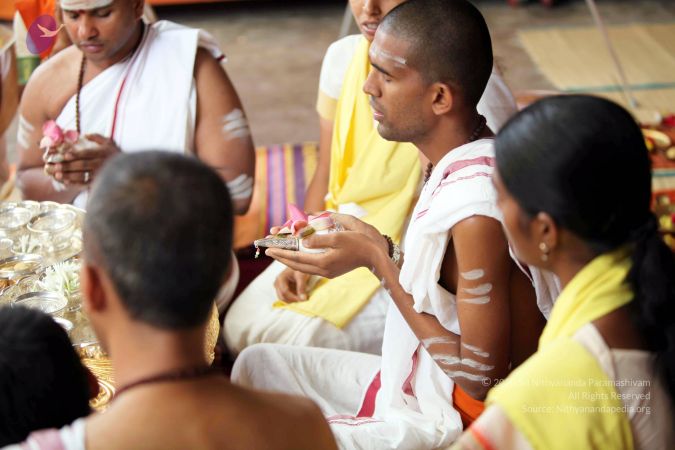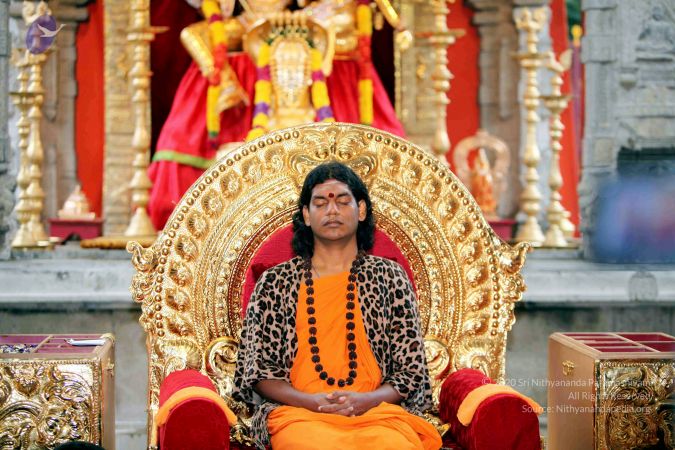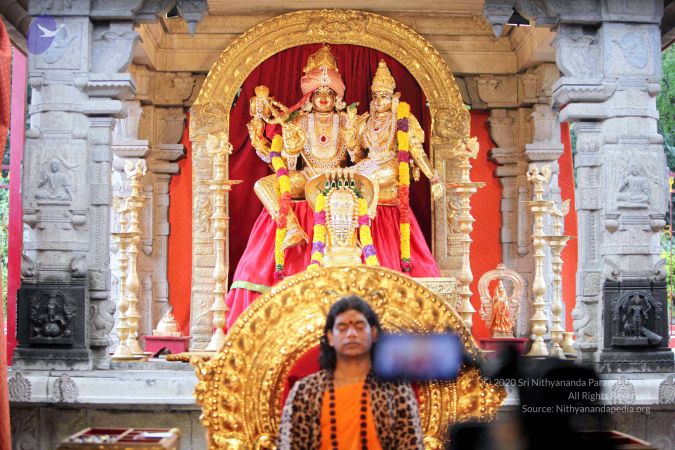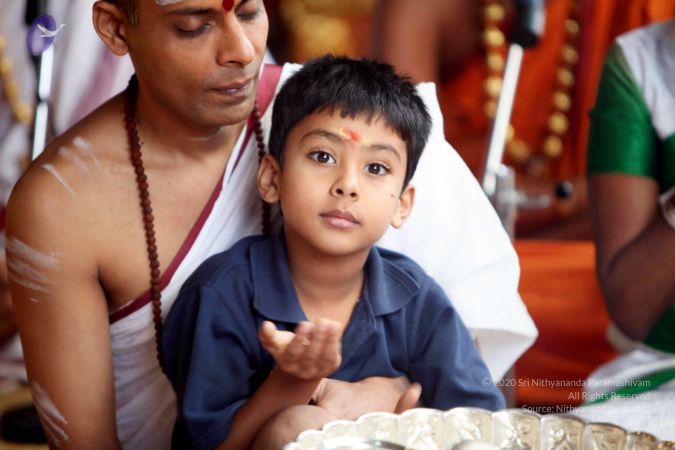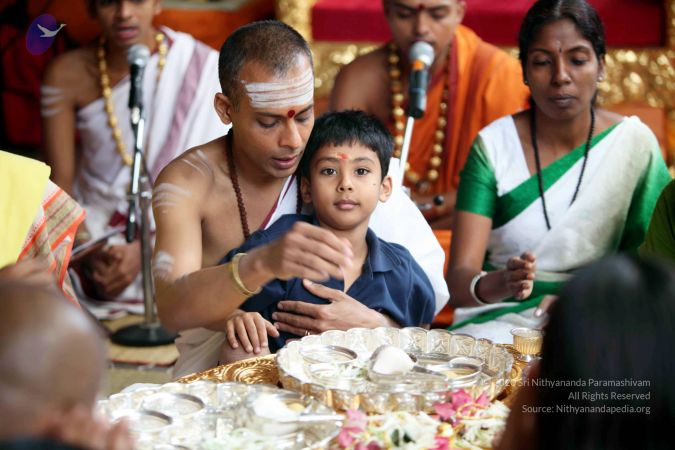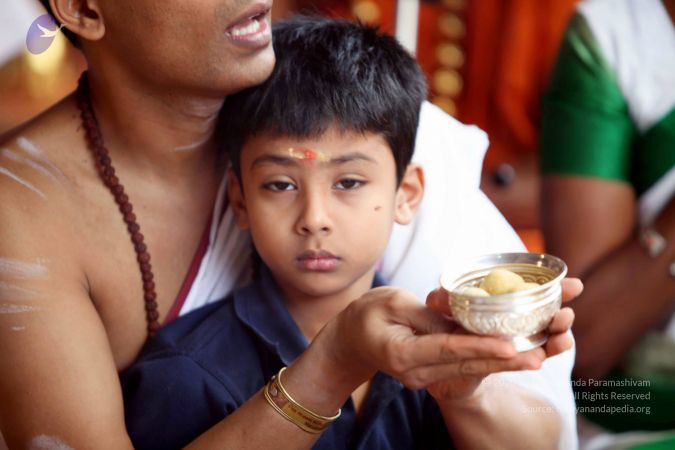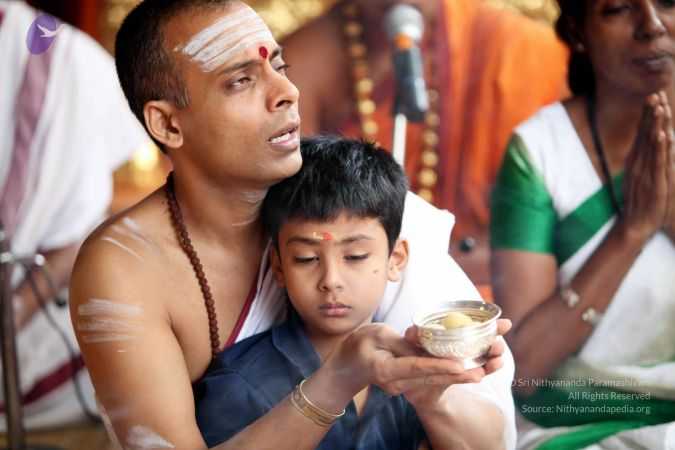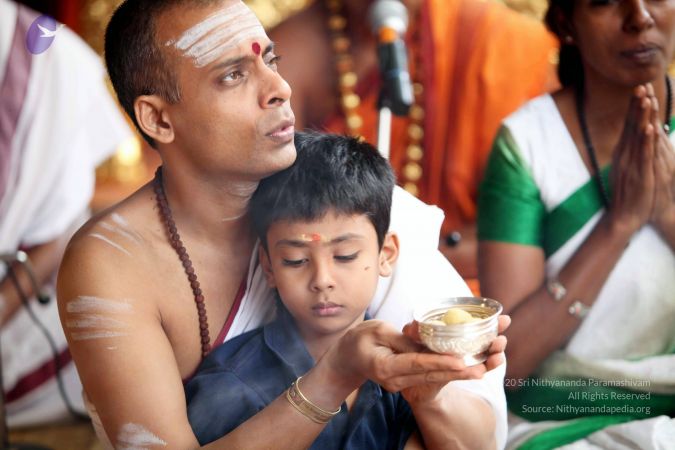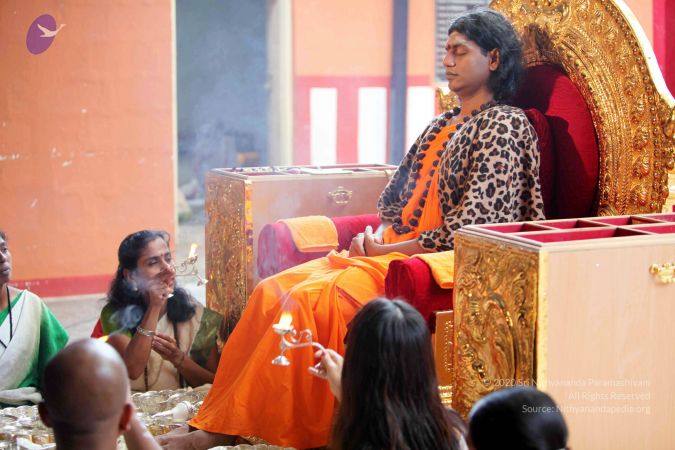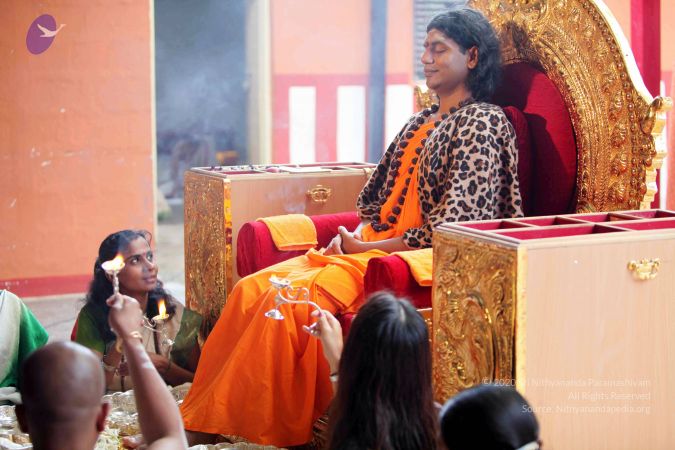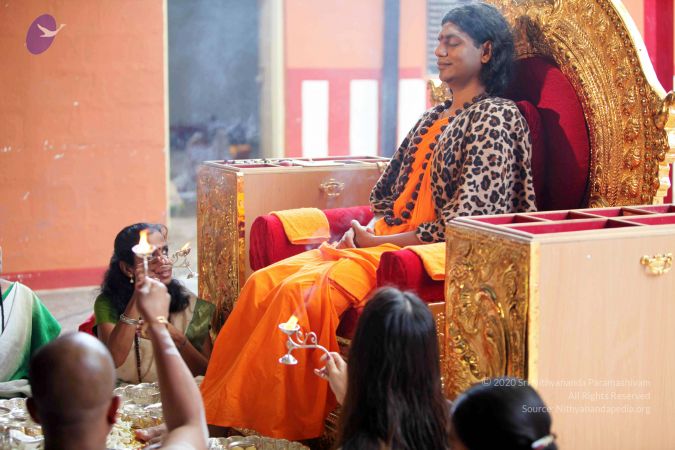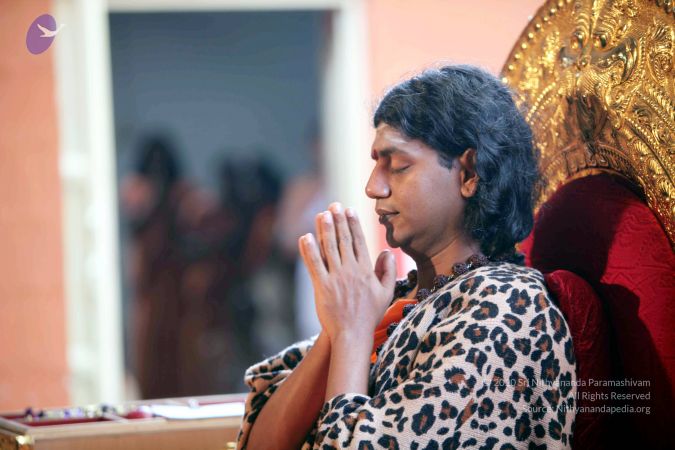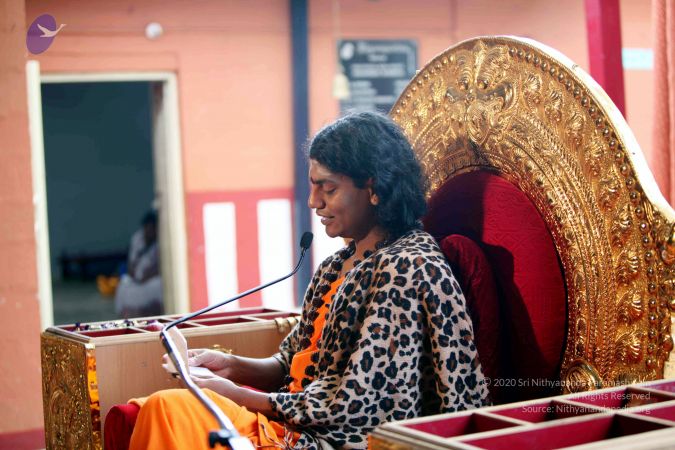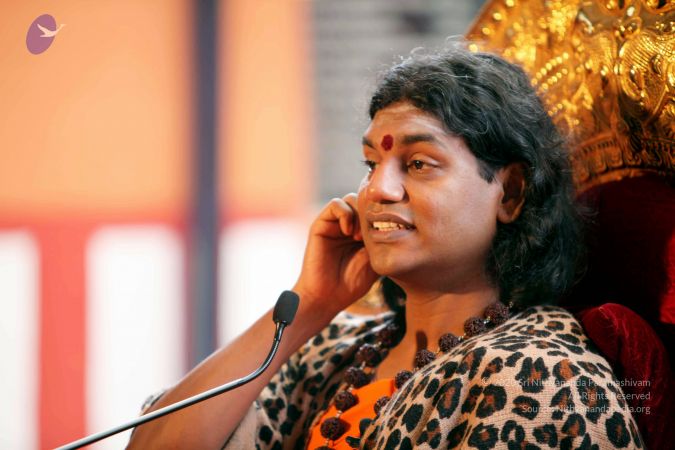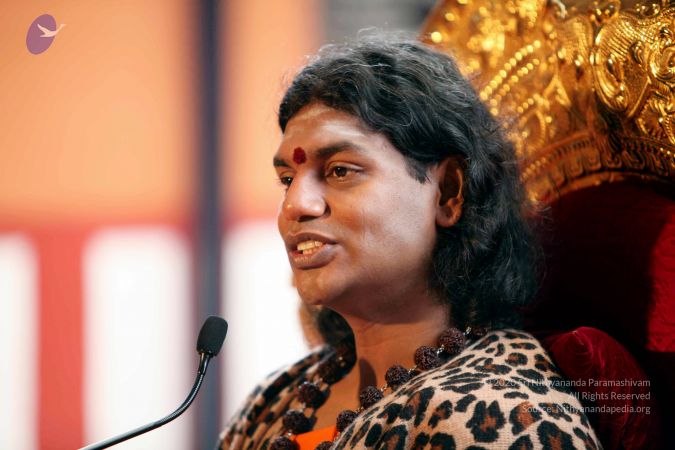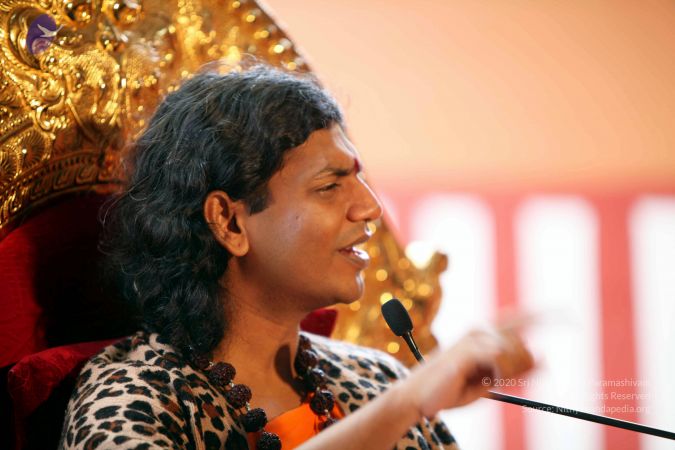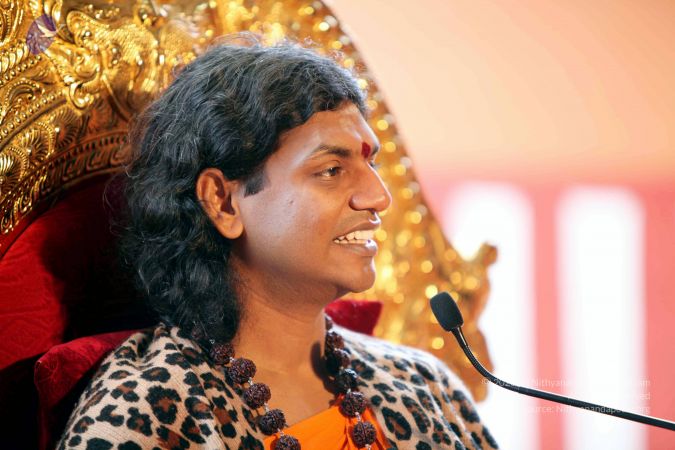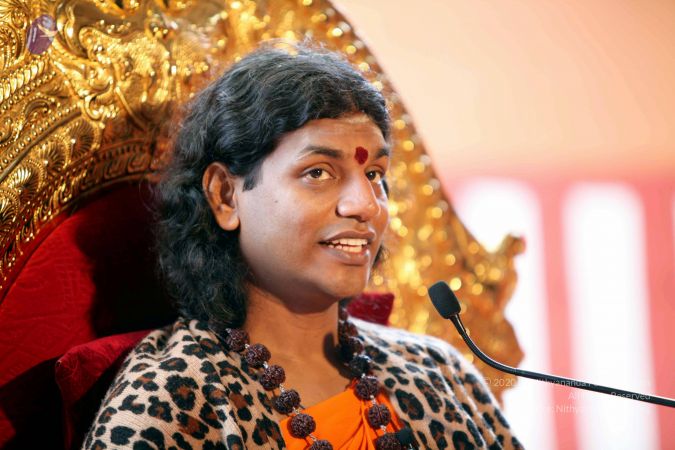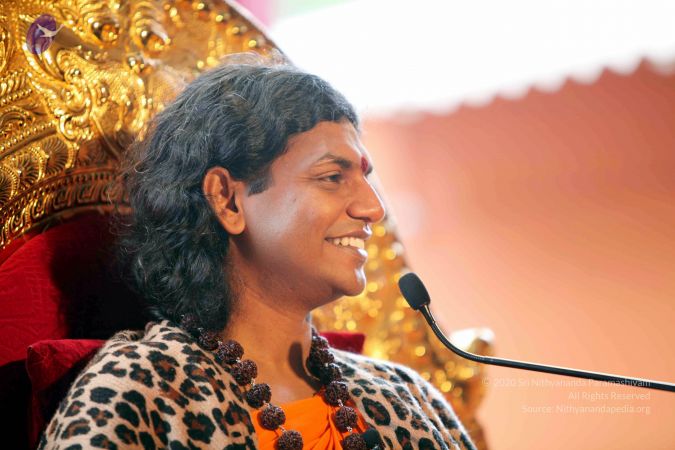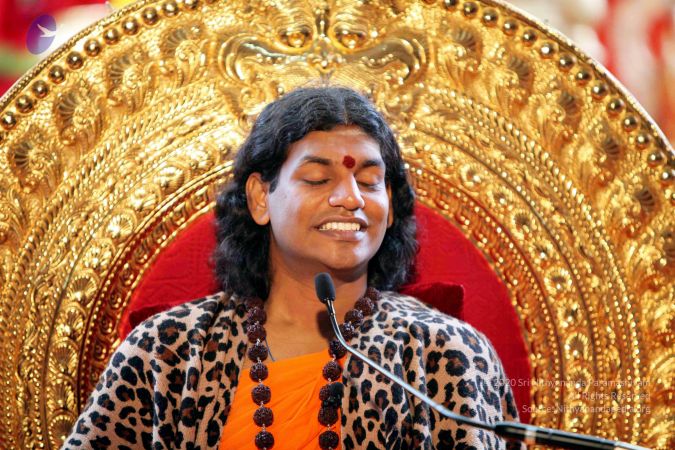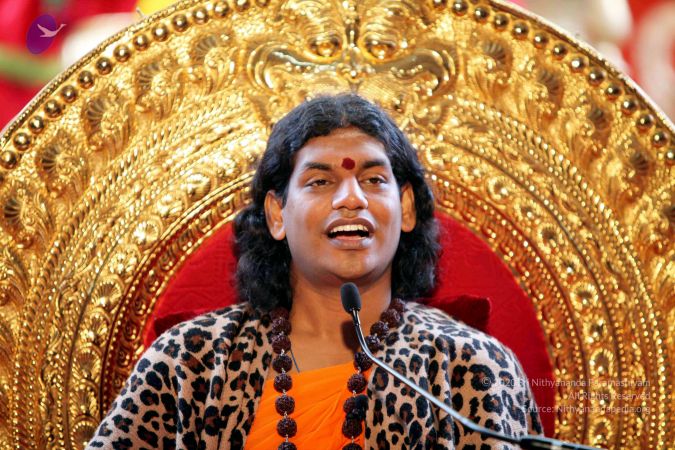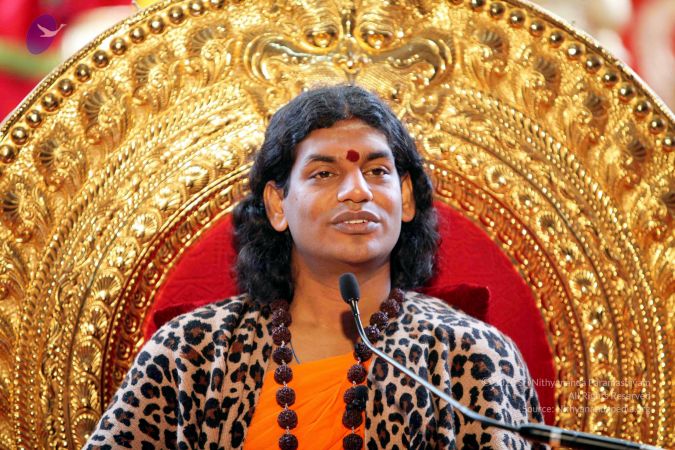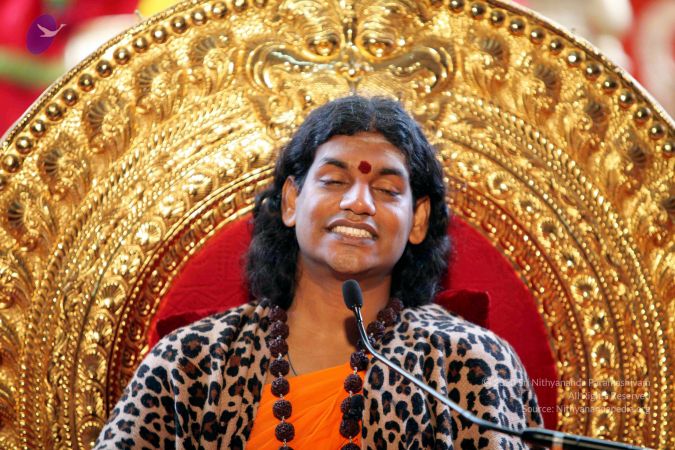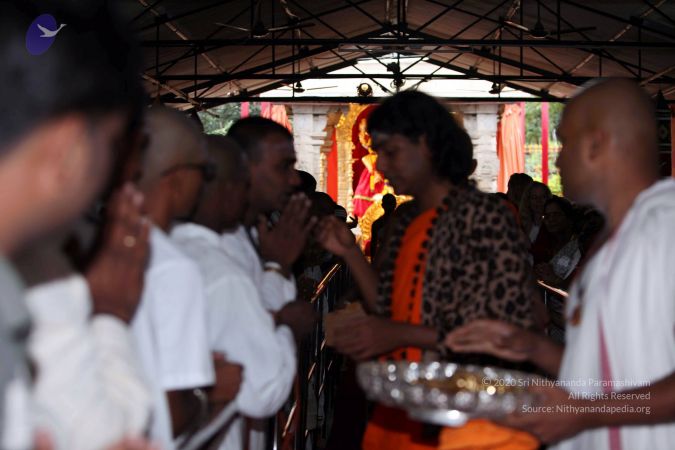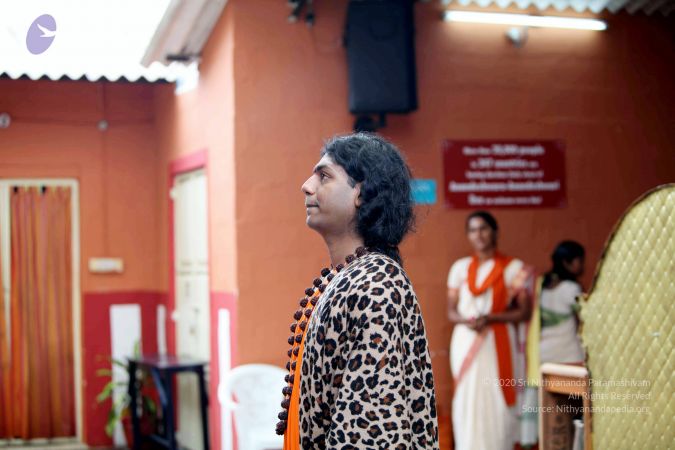November 08 2010
Title
Bhakti - The Eternal key for Wisdom: Nithyananda Morning Satsang (08 Nov 2010) Message
Narration
The Supreme Pontiff of Hinduism, Jagatguru Mahasannidhanam, His Divine Holiness, Bhagavan Nithyananda Paramashivam, expounded on the Cosmic Principles of Bhakti during the everyday live public talk - Nithyananda Satsang. In this talk entitled Bhakti - The Eternal key for Wisdom: Nithyananda Morning Satsang (08 Nov 2010) Message, His Divine Holiness (HDH) referenced the mystic poet, Kabir. After reading the poem, His Divine Holiness expounded that with Bhakti, the Ego simply disappears and is replaced by humbleness and deep patience. He directed us not to be around Him if we hold on to our suffering as suffering is based on arrogance as it reflects an absence of Bhakti and suffocates Him. His Divine Holiness advised delegates to first develop non-suffering, then we can be like the lover in Kabir’s poem who lends a helping hand to anyone who asks, without sacrifice, but with sharing.
Video
Bhakti - The Eternal key for Wisdom: Nithyananda Morning Satsang (08 Nov 2010) Message
| Video | Audio |
Transcript
Bhakti – The Eternal key for Wisdom
DATE: November 8th 2010
LOCATION: Nithyanandeshwara Paramashiva Temple, in front of the main sanctum, Bidadi Aadheenam
Sadashiva samarambam shankaraacharya madhyamaam Asmadaacharya paryanthaam vande Guru paramparaam.
Today's subject is ‘Bhakti - the eternal key for wisdom’. I can say wisdom - the eternal key for bhakti because the goal is bhakti not wisdom. Wisdom is for bhakti. I will give you some of the sacred sentiments from these great devotees like Kabir and define the experience of bhakti.
Very beautifully bhakti is described by Kabir. The bhakti winds in a delicate way. On this path, there is no asking and no not asking. The ego simply disappears the moment you touch him. The joy of looking for him is so immense that you just dive in and coast around like a fish in the water. If anyone needs a head, the lover leaps up to offer his. Yesterday one of our Ma rishi was asking, what’s a difference between the nonsuffering and vyakulata; yearning. Kabir gives an answer for this, that question.
See yesterday I was describing the base of bhakti is nonsuffering. She was asking how can we differentiate the nonsuffering and vyakulata; yearning. Please understand, in yearning, vyakulata, you will never have hatred towards the Master or God. In suffering you have demands and when that demands are not met you will have a deep hatred, pain. You can’t forgive him. Not only that even if he meets your demands you will feel, oh I am bound by him. I have to be independent of him. You will have hatred to him. I have seen people. If I don’t meet their need they have hatred for me. If I say it’s ok alright I will do what you want, even then, no I am independent of you. I don’t want you to do that. Again they have hatred.
Understand the difference between the non suffering and vyakulata. With vyakulata you will always melt you. With suffering you will try to melt the other person, try to change the other person. So nonsuffering is different, vyakulata is different. Please understand in vyakulata there will never be any hatred; yearning. There will never be any hatred. But in suffering, you will start hating the other person, the pain for. You will start abusing, blaming the other person. So understanding of the nonsuffering and vyakulata is very important.
Here Kabir very clearly says there is no asking and no not asking; no asking no not asking. In vyakulata you neither ask and it not that you never ask. With suffering, you ask and even if he fulfills, you are not fulfilled. And I have seen the arrogant people; they don’t even want to receive when I give. No, it is not necessary, because I begged you are giving, I don’t want to take that. Fools! With suffering, suffering is always based on arrogance and vyakulata is based on humbleness. Here the Kabir is describing vyakulata, no asking and no not asking; means you don’t ask and it is not mean, it does not mean you don’t accept when it is showered on you. It is such a deep humbleness and passiveness; deep patience.
You see with vyakulata you don’t feel he is human; equal to you. But with the suffering you start feeling he is equal to you. That is why always I tell people, if you are suffering you don’t have love for me. You bring me to your level. You try to bring me to your level. Your arrogance, you try to raise, you try to think you are equalent to me and you bring me to your level. With vyakulata you always know he is ultimate and you just only try to disappear into me, try to dissolve into the Master or God.
The bhakti path winds in a delicate way. On this path, there is no asking and no not asking. Kabir’s answer for difference between nonsuffering; Kabir is making you understand more clearly on nonsuffering and vyakulata. The ego simply disappears the moment you touch him. The joy of looking for him is so immense that you just dive in and coast around like a fish in the water. If anyone needs a head the lover leaps up to offer his. If, please understand Kabir is not saying if God needs a head or if Guru needs a head, lover leaps up to offer his. No. He says anyone needs a head because when you are in love with the Master when you are in love with the God, when you are in love, not just for him you are ready to sacrifice for anyone. You feel everything is worthy of sacrifice. The extreme love the extreme sacred sentiments.
Maybe with sacred sentiments more than hearing too much, you can just hear one sentiment and contemplate on it, work on it, meditate on it; so that you can imbibe it. So I am, I don’t want to give you too many sacred sentiments today. Just with this one sentiment; the bhakti path winds in a delicate way. On this path, there is no asking and no not asking. The ego simply disappears the moment you touch him. The joy of looking for him is so immense that you just dive in and coast around like a fish in the water. If anyone needs a head the lover leaps up to offer his. Understand here Kabir is not saying if God needs a head if Guru needs a head, the lover leaps up to offer his. No; he says anyone needs a head. So the key word for you to meditate on today is anyone needs a head; not God needs a head or Guru needs a head.
If God needs or Guru needs you know if you give you will get it immediately. You will get hundreds of head. You know he is going to care of you, because you have heard enough story; when God needs something if somebody gives, immediately he blesses and he gets that back. It’s like a I have heard a story, Shiva goes to somebody’s house and asked for his son, I want the flesh of your son to eat. Then that couple they kill the son and offer the flesh; cooked meat. Then immediately Shiva blesses and that son comes back to life. You know the story. So when God or Guru needs if you give, you know in background of your mind you will get it back. It’s a business.
But here Kabir says anyone needs; anyone needs. Means you are just in love, so fulfilled, the sacrifice does not look too big. Understand when the sacrifice does not look too big it is a real sacred sacrifice; sacrifice. See all sacrifice really happens or it becomes real sacred sacrifice when you don’t even know you are sacrificing. It’s like such a beautiful feeling. That’s what Kabir talks here. Anyone needs a head means you just feel what you need to have through your head you have it. And just for any reason any simple thing you can just sacrifice. It’s not a sacrifice it is just sharing; a casual expression of your flowing fulfillment. A casual expression of your fulfillment is what I call sacred sacrifice.
So understand first you need to develop yourself to the nonsuffering. If you are suffering be very clear you are suffocating me. I just want to escape from you or I want you to escape from me. So create nonsuffering base; that is a foundation. Then no asking and no not asking; that is a building no asking and no not asking. If it is showered, showered great; neither asking nor I don’t want, that arrogance; that’s a building. And the kalasha dome of the temple is, if anyone needs a head, the lover leaps up to offer his. The sacred sacrifice, a simple casual sharing of your fulfillment; the decision which happens out of your fulfillment, that is the kalasha of this building. In this building God lives, in this building divine lives, in this building master resides.
I can say ananda gandha chakra is this building. The foundation of nonsuffering and pillars of no asking and not asking, no asking and no not asking is the pillars of that building and sacred sacrifice is the kalasha of that temple. This is the temple where God or the Guru resides.
I bless you all to have that temple so that God or Guru, the ultimate resides in that temple. Let you all achieve and radiate enlightenment. Let you all achieve, live, experience, express, radiate, the eternal bliss, Nithyananda.
Thank you.
Title
eN Youth Nov 08, 2010 Fear
Video
eN Youth Nov 08, 2010 Fear
